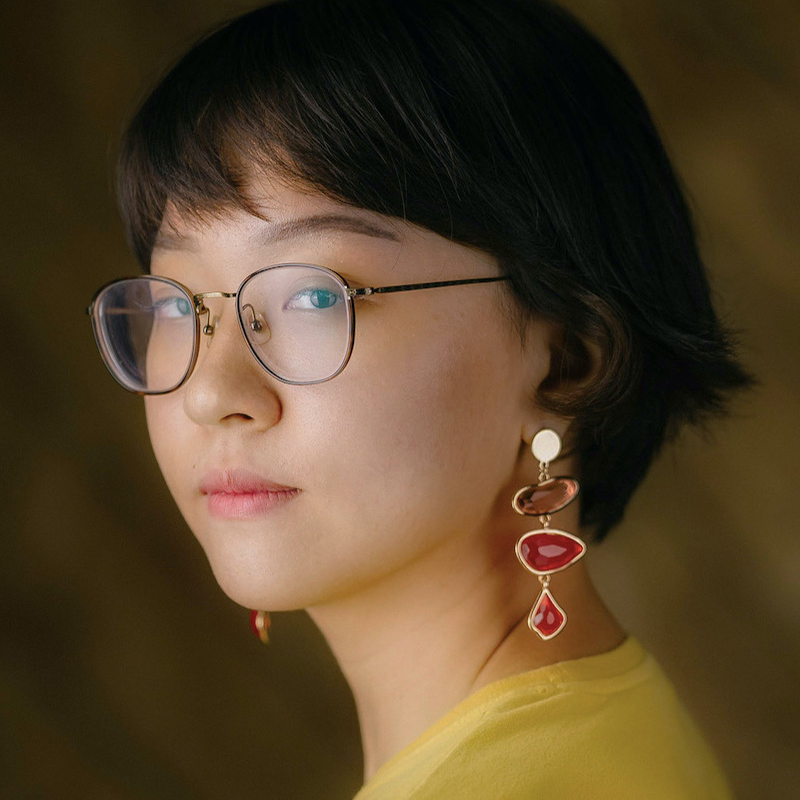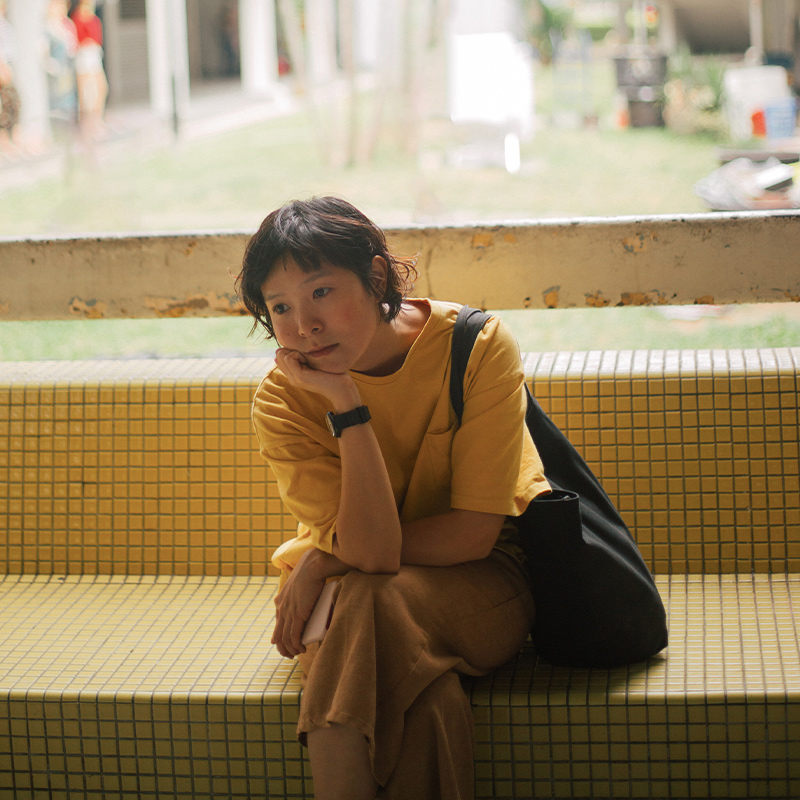Films have always been a reflection of society. Beyond their entertainment value, they are a microcosm of the world we live in—often mirroring the values and beliefs that matter most to us. They don’t just embody the present day, but also the ideals we strive to move towards. This is no different in Singapore. Within our growing film scene, you’ll find a tapestry of narratives imbued with Singaporean culture, as local filmmakers use their craft to convey the stories that matter most to them.
In line with National Day this year, Vogue Singapore speaks to seven local filmmakers to find out the uniquely Singaporean tales they want to tell. Whether it’s a community they seek to spotlight or a cause they hope to bring to the forefront, these narratives reveal the perspectives and subjects that are important to our local creatives. Across a variety of genres that span from animation to documentary, these films come together to form a picture of our city-state that is diverse and heartfelt—and waiting to be explored. Along the way, the filmmakers also open up on the changes they want to see in the Singapore film scene, and what they hope to achieve through their craft.

1 / 7
Siyou Tan
In Siyou Tan’s latest short film, Strawberry Shortcake, a trio of rebellious Singaporean schoolgirls get caught smoking by their principal. The prank they pull on her, in retaliation, takes things a step too far. “I want to tell stories about the outsiders in Singapore—the people that don’t conform or are overlooked—so those films might reach the quiet, forgotten people at the back of the room. I want to tell stories about mischief and disobedience, because I think the human desire to feel free is magnified in our strict lawful society, and it becomes a uniquely Singaporean trait to want to “cheat the system” in small, seemingly insignificant ways. And I want to tell stories about friendship as a great romance,” Tan shares. Strawberry Shortcake, in some ways, encompasses all three.
A Singaporean writer and director based in Los Angeles, Tan was most recently one of 15 filmmakers selected for Berlinale’s 2022 Talents Tokyo. Her works have played in competition at some of the biggest international film festivals in the world, including the Toronto International Film Festival and the Berlinale.
When it comes to screens at home, her wish for the film scene is simple. “I want to see more Singaporean films play in the cinemas, and for those cinemas to be bursting with people—especially Singaporeans—who are excited, challenged, moved, inspired and intrigued. I hope they walk out loving or hating or feeling confused about what they’ve seen, and have meaningful conversations about the films and our society.”

2 / 7
Kathleen Bu
When asked for one thing she hopes to see from the local film scene, Kathleen Bu’s answer is clear: variety. “We’re really good at melodramas and pulling at heartstrings, but imagine watching the craziest Singaporean film that makes you question what just happened. I want to see films like that—not just for the sake of being different, but to push our local scene to the next level,” she notes. “As Singaporeans, we tend to take ourselves too seriously. We are very structured and we have this mentality that a single misstep leads to something disastrous. But life is not a straight line at all.”
Having earned three accolades at the Singapore National Youth Film Awards for her thesis film alone, Bu is one of the rising young filmmakers forging a new path for Singaporean film. “Our younger generation is moving towards a more liberal form of storytelling and that’s exciting to me. At this stage, we should support all crazy ideas because that’s when we grow as an industry. Even if we fail, at least a path has been made.”
Her works, which have spanned from coming-of-age and sci-fi to fantastical drama and psycho-horror, certainly reflect this. “My only goal in filmmaking is to be in constant change and to always have fun,” she shares. “When I think of the stories I want to tell, it’s almost as if the idea transpires by itself. But really, it’s through my subconscious observations of our world and of ordinary Singaporeans. I hope to continue being a quiet wallflower, listening to passing whispers of everyday lives and reinterpreting them into my own thoughts. That is what forms an interesting and unique ‘Singapore story’ to me.”

3 / 7
Calleen Koh
It’s easy to spot Calleen Koh’s films in a line-up. Her offbeat animation style is distinct, as is the comedic slant she takes to approach serious, and sometimes controversial, topics. In To Kill the Birds & the Bees, she delved into the hilarious yet unfortunate intergenerational clash over our perceptions of sex in Singapore. In Hot Buns, a world of anthropomorphic butts and hands pokes fun at our society’s obsession with feel-good narratives and moral outrage.
“I want to dig deeper into real Singaporean stories that rarely get the spotlight. It’s really cool to see how these stories click with local folks,” she muses. “Seeing local audiences crack up in the theatres, especially at those inside jokes that only Singaporeans can get, feels like a big nod to how we’re hungry for more of our own stories up there on the big screen.”
But it’s evident that it’s not just Singaporeans that connect with her films. Amongst its long list of accolades, To Kill the Birds & the Bees was shortlisted for the Yugo BAFTA Student Awards in Britain and selected to be screened at the Annecy International Animation Film Festival in France. “My big dream is to create a film that becomes a real cultural touchstone in Singaporean cinema—something that both locals and people from all around the world can enjoy,” she shares. It would seem, then, that she’s already successfully taken the first step.

4 / 7
Viknesh Silva
It is evident from Viknesh Silva’s works that his passion lies in uncovering the stories of overlooked and marginalised communities in Singapore. His short film Dark Light follows an Indian foreign worker who finds himself in a desperate situation after losing his hard-earned money in an illegal gambling den. Similarly, Altar highlights the unseen struggles of Singapore’s elderly population through the story of an old man battling cancer and facing financial hardships.
“These narratives are deeply rooted in reality and resonate with the audience because they shed light on the struggles faced by some members of our society,” he shares. “What drives me to tell these stories is the profound connection I feel with the protagonists. I find common threads of resilience, determination, and the human spirit’s ability to endure in the face of adversity. These are universal themes that transcend cultural boundaries and resonate with audiences from all walks of life.”
The impact that his films leave on audiences is unmissable, and has earned Silva the title of Best Director two years in a row at the Singapore National Youth Film Awards. “As a filmmaker, I believe that film is a medium where the viewer can be manipulated in many ways without realising it—to take you to a place you never thought you’d go, and to make you think about things you never thought you’d think about,” he reflects. “With this power, my goal is to shed light on the lives of those who often go unnoticed and spark meaningful conversations and foster a greater sense of compassion and social responsibility.”

5 / 7
Gladys Ng
Gladys Ng’s Every Floor Looks The Same is a joy to watch. Seen through the perspective of languishing young Osmanthüs, it is an observation of the peculiar nature of life in Singapore. For those of us who have grown up here, it offers a look at our city-state through fresh eyes—unveiling moments of whimsy and contemplation to form a tapestry of everyday life we’ve become accustomed to.
“Rather than specific stories, what stands out to me are the unique textures of Singapore—our heartland-scape, the sounds, the smells and the languages! This is something I’ve been continuously trying to include in my films,” shares Ng. Often celebrated for their nuance and wry humour, her short films have competed and won awards at numerous film festivals both local and international.
“There’s a tendency to see films as simply a form of entertainment, but there’s so much more to film viewing,” she points out. “I would love to see audiences in Singapore take more of an active role by layering and reflecting on their own life experiences when watching films.”

6 / 7
Christine Seow
“My ultimate goal in documentary filmmaking is to not only illuminate the unique human conditions of people around us but also create a visceral connection between audience and profile,” shares Christine Seow. “Through this connection, I hope to foster understanding, compassion, and meaningful dialogue, ultimately leaving a lasting impact on the viewers and inspiring them to reflect on their own lives and the world around them.”
Her films embody this goal, often touching on issues that are underrepresented in the local cinematic space or slightly more taboo in nature, and bringing them to light in fresh, creative ways. Through her work, she has created a space for voices of delinquent juveniles, persons with disabilities and bereft individuals to be heard.
“I would like to continue exploring stories that highlight the complexities of identity and inclusivity set against the backdrop of one of the world’s most developed countries in the world,” she notes. “Some stories that are currently brewing in my mind revolve around the pressure of the PSLE and the concomitant stress of academic excellence, as well as incarceration in Singapore; both of which are close to my heart. An overarching thread that I would like to embed in my art touches upon the unseen realities common to the masses in hopes of evoking a sense of empathy amongst Singaporeans.”

7 / 7
Alistair Quak
“Loneliness whilst living in the constant hustle and bustle of Singapore is something that I’m curious about and would like to explore through film,” shares Alistair Quak, “This can be said now more then ever for most cities, but there is something about the image of an empty void deck or the feeling of being alone in a sea of people that really sets it apart and intrigues me.”
What will truly make a simple story like that stand out, however, is Quak’s flair for visceral storytelling. His short film Tuition is a prime example, completely immersing viewers in the reality of a secondary school student stuck in an oppressive, anxiety-inducing tuition lesson with an abusive teacher. Meanwhile, his latest release Henchmen takes inspiration from archetypal action movies.
“I wish there were more support for filmmakers to venture out into crazier territories. In Singapore, we’re clearly good at serious HDB dramas, arthouse films and relatable slapstick comedies. I fully support all local cinema, but I think there should always be room to experiment and pursue more ambitious things. If everybody played it safe, films like The Matrix and Everything Everywhere All at Once would never have gotten made,” he points out. “I would love to see more genre films in the local scene. Not PG-13 horror movies or a half-baked attempt at a commercial action film, but intense splatter films and insane action cinema that don’t hold back.”





